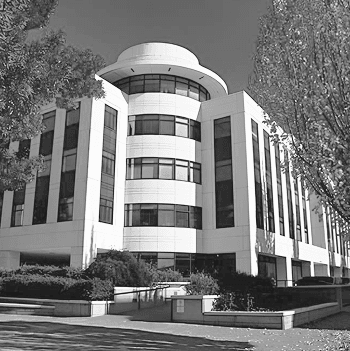What is the State of Psychedelics in Oregon?
Oregon's psychedelics reform initiatives finally found success in November 2020 when voters in the Beaver State passed Ballot Measure 109. Also called the Oregon Psilocybin Services Act, Ballot Measure 109 legalized the supervised use of psilocybin for adults aged 21 and over in licensed facilities. This move made Oregon the first state in the United States to legalize psilocybin for therapeutic purposes and specified a two-year development period for the Oregon Health Authority (OHA) to establish regulations and licensing procedures for the program.
OHA's Oregon Psilocybin Services (OPS) began accepting license applications on January 2, 2023. By the summer of 2023, licensed psilocybin service centers started operating, offering supervised psilocybin sessions to clients. As of 2025, there were 31 licensed service centers and 356 licensed facilitators in the state. Approximately 8,000 clients had participated in psilocybin sessions, with reports indicating minimal side effects.
In 2025, the OPS implemented new administrative rules effective January 1, 2025, following the passage of Senate Bill 303. Codified in ORS 475A.372 and ORS 475A.374, SB 303 establishes new reporting requirements for licensed psilocybin service centers and for Oregon Psilocybin Services (OPS), the state agency responsible for overseeing the psilocybin program.
Under SB 303, service centers must collect specific data from clients attending psilocybin administration sessions. Each client is required to complete a 303 Client Data Form, which should be provided before or during the client’s preparation session. Clients may choose to opt out of having their data submitted to OPS by checking a designated box on the form. Service centers are responsible for collecting and storing these completed forms in a secure manner that ensures confidentiality and prevents unauthorized access. Data collected must be submitted to OPS by the designated quarterly deadlines.
Once OPS receives the submitted data from service centers, it will compile and de-identify the information to remove any personal identifiers. The OPS is required to share this de-identified data with the Oregon Health and Science University (OHSU) on a quarterly basis for research and program evaluation purposes. Additionally, OPS will publish aggregated data quarterly on the OPS Data Dashboard, making statewide information about licensing, service delivery, and compliance available to the public.
Additionally, the OPS is conducting public listening sessions and accepting public comments to inform further rulemaking, with proposed changes expected to take effect on January 1, 2026.
House Bill 2387, passed in 2025, provides legal protections for licensed healthcare providers who wish to discuss psilocybin therapy with their patients. This bill addresses concerns that healthcare professionals might face disciplinary actions for engaging in conversations about psilocybin therapy, thus promoting informed decision-making between patients and providers.
While the state has embraced psilocybin therapy, some local jurisdictions have opted out. As of 2025, over 100 cities and 25 counties in Oregon have enacted bans or moratoriums on psilocybin-related businesses.
Note that Oregon law permits only psilocybin products derived from the Psilocybe cubensis shrooms. The cultivation and use of wild-harvested mushrooms and synthetic forms of psilocybin are strictly prohibited under state regulations. Approved psilocybin products must be produced in licensed facilities and may take several legal forms, including whole dried mushrooms, ground and homogenized fungi, extracts, and edible preparations. Among the most commonly used edible psilocybin products are psilocybin-infused tea, gummies, and chocolates, all of which must comply with Oregon’s regulatory standards for safety.
How Has Psychedelics Affected the Economy of Oregon?
Oregon’s legalization of psilocybin via the passage of Ballot Measure 109 in 2020, has impacted or is estimated to impact the state’s economy in the following ways:
Revenue Generation
While the state imposes a 15% sales tax on psilocybin products, this tax applies only to the psilocybin itself, not the total cost of therapy sessions, which ranges between $1,500 and $3,000. Consequently, tax revenues have been limited. However, for the 2023–2025 biennium, Oregon's Office of Economic Analysis projected psilocybin tax revenues at approximately $618,000, a figure significantly lower than the $300 million expected from recreational marijuana taxes during the same period.
Business Landscape
By 2025, the Oregon Health Authority has licensed 30 psilocybin service centers, 12 manufacturers, and one laboratory. As of January 2025, approximately 20,000 psilocybin products had been sold. This indicates that the impact of legalizing psychedelics on the business landscape in the state has not been as huge as may have been expected.
Community Impact
While some urban areas have embraced the industry, over 100 cities and 25 counties have enacted bans or moratoriums on psilocybin-related businesses, limiting the program's reach and economic potential in those regions.
Workforce Development
The program has created new employment opportunities, with 346 licensed facilitators and 757 workers holding permits as of January 2025.
What is the Psychedelics Crime Rate in Oregon?
Comprehensive data on psilocybin-related crime rates in Oregon are limited. However, despite the legal provisions for the use of psilocybin, unauthorized activities persists. Note that in addition to the legalization of psilocybin-assisted therapy in 2020, Ballot Measure 110, approved in the same year, also decriminalized the possession of small amounts of most recreational drugs, reclassifying such offenses as civil violations rather than criminal ones.
Between 2017 and 2022, Oregon experienced a 105% increase in psilocybin mushroom seizures, ranking eighth nationally for such confiscations. In 2022, law enforcement conducted a notable raid on an unlicensed psilocybin retailer in Portland, resulting in multiple felony charges.
What is the History of Oregon Psychedelics?
Oregon has played a leading role in the recent initiatives movement to legalize and regulate psychedelic substances in the United States. While the use of psychedelics in Oregon dates back many decades, it is only in recent years that the state has taken legal measures to acknowledge and regulate their use, particularly psilocybin.
Early interest in psychedelics in Oregon and other jurisdictions in the United States began in the mid-20th century. During the 1950s and 1960s, the scientific and psychiatric communities started to explore the therapeutic potential of substances such as LSD and psilocybin. However, as recreational use of psychedelics grew, public concern increased, and by the early 1970s, federal laws, including the Controlled Substances Act of 1970, had made the possession and use of psychedelics illegal.
Despite criminalization, Oregon communities maintained a strong subculture of alternative healing and spiritual exploration, particularly in cities like Portland and Eugene. Advocates of psychedelics continued to explore their uses, often through underground therapeutic or ceremonial contexts.
However, a major turning point in the history of psychedelics in Oregon came in November 2020, when voters passed Ballot Measure 109, known as the Oregon Psilocybin Services Act. This measure did not broadly legalize psychedelics for recreational use but rather created a legal framework for the regulated medical and therapeutic use of psilocybin in supervised environments. With nearly 56% of voters in favor, Oregon became the first state in the United States to legalize psilocybin.
Measure 109 allowed the Oregon Health Authority (OHA) a two-year development period to establish the licensing, training, and safety regulations necessary for administering psilocybin therapy. The program was designed not for self-administered or take-home use, but for guided therapeutic sessions conducted at licensed service centers under the supervision of certified facilitators.
Still in the 2020 election, Oregon also passed Ballot Measure 110, a separate initiative that decriminalized the personal possession of small amounts of all drugs, including psychedelics. Instead of arresting and prosecuting individuals for possession, Measure 110 provided for treatment and recovery, issuing civil citations with the option to complete a health assessment.
The Oregon Psilocybin Services program officially began accepting license applications on January 2, 2023. The state issued licenses to service centers, manufacturers, facilitators, and testing laboratories. By 2024, clients across Oregon could legally participate in psilocybin sessions, which typically include preparation, administration, and integration phases.
Since the program's launch, Oregon’s legislature and health officials have continued to refine the regulatory framework. Senate Bill 303 and House Bill 2387 are key legislative measures in Oregon to improve the regulation and accessibility of psilocybin services. SB 303 focuses on improving data collection and oversight within Oregon’s psilocybin program. The law mandates that service centers gather information about clients, including demographic details such as race, gender identity, sexual orientation, income level, and county of residence. It also requires documentation of the reasons clients seek psilocybin services, as well as any adverse reactions experienced during administration.
From January 1, 2025, all psilocybin users at licensed service centers now complete a designated data form, though they retain the right to opt out of submitting their information to state authorities. However, service centers must still securely collect and store these forms. To ensure transparency and research-driven policy decisions, the Oregon Psilocybin Services (OPS) will de-identify and compile this data, sharing it with the Oregon Health & Science University (OHSU) and publishing reports on the OPS Data Dashboard.
HB 2387, on the other hand, addresses psilocybin service providers, regulatory procedures, and product labeling. Under this legislation, licensed health professionals who are also certified psilocybin facilitators can integrate psilocybin services into their medical or behavioral health care practices without the risk of disciplinary action. The bill also allows regulatory boards to share complaint-related information with the Oregon Health Authority (OHA) while maintaining confidentiality.

Psilocybin therapy regulated by Oregon Psilocybin Services under the Oregon Health Authority.



